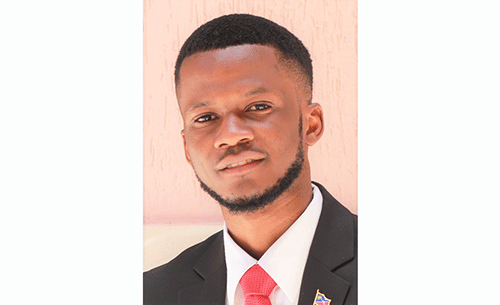Tio Erastus Nakasole
Where we stand depends on where we sit. Every effective strategy-making begins with an end in mind. A vision is not something superficial to brag about, to win votes nor to canvas support to survive. A vision is your submission to the future. The Namibian Nision 2030, stipulated that the country will be prosperous and industrialised by then. There is no doubt that, based on the desire that the country made an appointment to, it requires change, transformation, education, renewal, accountability, measurement, courage, zeal and all other key components which can make it to be realised. Vision requires discipline and management in the process. You can be a teacher by profession, but if you are not a teacher at heart, you will not bring about change. A vision involves a process and a tremendous commitment.
The linear of time
So far, Namibia has conducted six free and fair elections every five years in 1994, 1999, 2004, 2009, 2014 and 2019. Time is linear, which requires hope, sight and the giraffe view for improvement in the lives of human beings and the nation. The 2024 election means a lot than a pen and a paper. The election result will give meaning, and determine who will lead us towards Vision 2030. Thirty years after independence, the country has been confronted with the formation of so many political parties and so-called revolutionary parties, which in ideologies do not bring about changes to the developmental programmes nor initiate and turn around the status quo.
Declaration is a debt
It is impossible for us to break Vision 2030. We can only break ourselves against it. Vision 2030 has been continually swimming against the tide of the constitutional provisions, such as articles 16 and 23. Namibia completed 30 years of independence without a clear policy framework within which economic empowerment can take place. Furthermore, the government has flip-flopped on the key issue that has to do with property rights. Value addition, especially in the mining sector, has been nosediving while plant-based Namibian product sales have not been conducted on an industrial scale. Corruption is rampant, and the gap between the poor and rich has been skyrocketing. You don’t drive towards industrialisation if the Balance of Payments are still being reflected in a lopsided manner. With the remaining years, this will pressurise the government to be held accountable for some of these key economic indicators. Of course, this brings about sequestration to those without capital and a tragedy of commons on the other hand. There are plenty of sound policies and sensible programmes that may bring about a prosperous and industrialised society.
The paradigm shift
In all life, there are sequential stages of growth and development. I fully agree with one of the Greek philosophers and polymath Aristotle, who brought it to light that ‘’We are what we repeatedly do. This is an indication that if a vision is an appointment, then we have to live up to it in all our dealings. Since independent, Namibia’s agricultural sector has been lower in growth than in the overall economy. More government capital should be geared towards this sector in order to make Namibia the breadbasket of not only Africa, but the rest of the world. More research and development has to be invested and enacted in this area. Agriculture is well- known not only for its mass employment, but for turning a dependent country into self-sufficiency when it comes to food production. Green schemes should not only be green in a word of mouth, but the outcome should be reflected by prices dropping in the market on the products. You cannot help others with an empty stomach. If Namibia wants to make a significant quantum change, there is a need for the Namibian Government to work on our targets on a daily basis. Political differences have to be put at the backburner in order to gravitate towards the desired result in the remaining eight years.
In conclusion, whatever is wrong in the national developmental programmes and objectives will never be realised in practice. A vision has to be a workable spectrum, and not a speed bump. A vision should not only be an aspiration of discussion, but the lens through which we see the world, as well at the world we see, and it’s that lens itself that shapes how we interpret our being.


